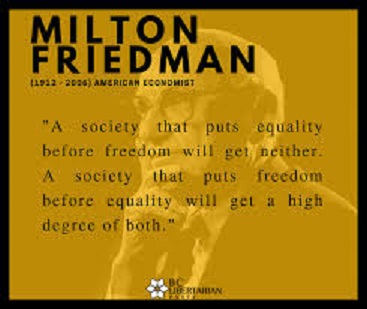The U.S. Constitution, the one the founders wrote, holds that all men are created equal. We are endowed by our “nature and nature’s God” with unalienable rights. Those rights precede government. Further, the purpose of the state is to protect those rights and to treat all citizens equally.
The identity politics constitution holds we are a nation with division into categories. These categories are constructs of government itself. They are categories such as Hispanics, Asian Americans, and assorted pan-ethnicities. The creation of these are artifices comes from the Office of Management and Budget (OMB) in 1977. They include the 31 genders approved by the New York City Commission on Human Rights.
In the identity politics regime, positive law creates rights and entitlements. These rights and entitlements get unequal distribution to members of these categories. The distribution is done as a virtue of belonging to these categories. There is no recognition that all of us possess faculties like reason and free will. There is no recognition of the concepts of free will and reason.
Who owes reparations? Who will pay reparations?
Identity politics supports reparations to descendants of former slaves. There is no thought given to remoteness of the ancestry or participation of those who must pay. Instead, reparations are dye from everyone else. No matter how distant they are from the evil of slavery, or even if none of their ancestors participated at all. To those supporting identity politics reparations are a pure form of these benefits.
There are other benefits in use today. They include the racial preferences of affirmative action in education, preferential minority contracting, preferential minority employment, and the use of the “disparate impact” doctrine… among others. The identity politics constitution depends on factionalism for its very existence.
The founders of America saw factionalism as a “dangerous vice.” We know this if we read the Federalist Papers which explain much of the thought which went into the U.S. Constitution. They saw factions as something that could unite voters around interests or passions.
The harmful aspect of factions comes in when the interests and passions of the faction are “… adverse to the rights of other citizens, or to the permanent and aggregate interests of the community…” This comes from the words of Publius, a pseudonym for James Madison, in Federalist 10. Thought, not only prejudice and bigotry went into the U.S. Constitution. Factions at work will produce a result; it’s not always a positive result.
Inequalities: Inevitable results of humanity?
For the U.S. Constitution, a “well-constructed union” would seek ways to “break and control the violence of factions.” Not so for the identity politics constitution. Its purpose is to erect those factions and make them permanent. This is true even when members of a given faction no longer want to belong to it. This is true even if they were never content to be members in the first place.
Robin DiAngelo writes in her bestseller “White Fragility” “… Not naming the groups that face barriers only serves those who already have access…” She is a consultant and one of the preeminent promoters of the identity politics constitution. She writes, “…Contrary to the ideology of individualism, we represent our groups and those who have come before us.”
For America’s founders, inequality was inevitable. We live in the real world and there is a “diversity in the faculties of men.” Among other things, this naturally results in unequal wealth. This is something that is not inherently unjust. To them and to those of us who support the U.S. Constitution factions are a function of the personal interests that arise from this inequality.
The radical egalitarians of the rival constitution see inequalities differently. For them, inequalities arise from their perception that America is institutionally racist, sexist, homophobic, etc. These inequalities are inherently unjust. The resolution must result in taking from the members of one faction without regard to the ability to pay. The wealth government collects will be given to members of other factions without regard to need. This is the result of factions at work.
